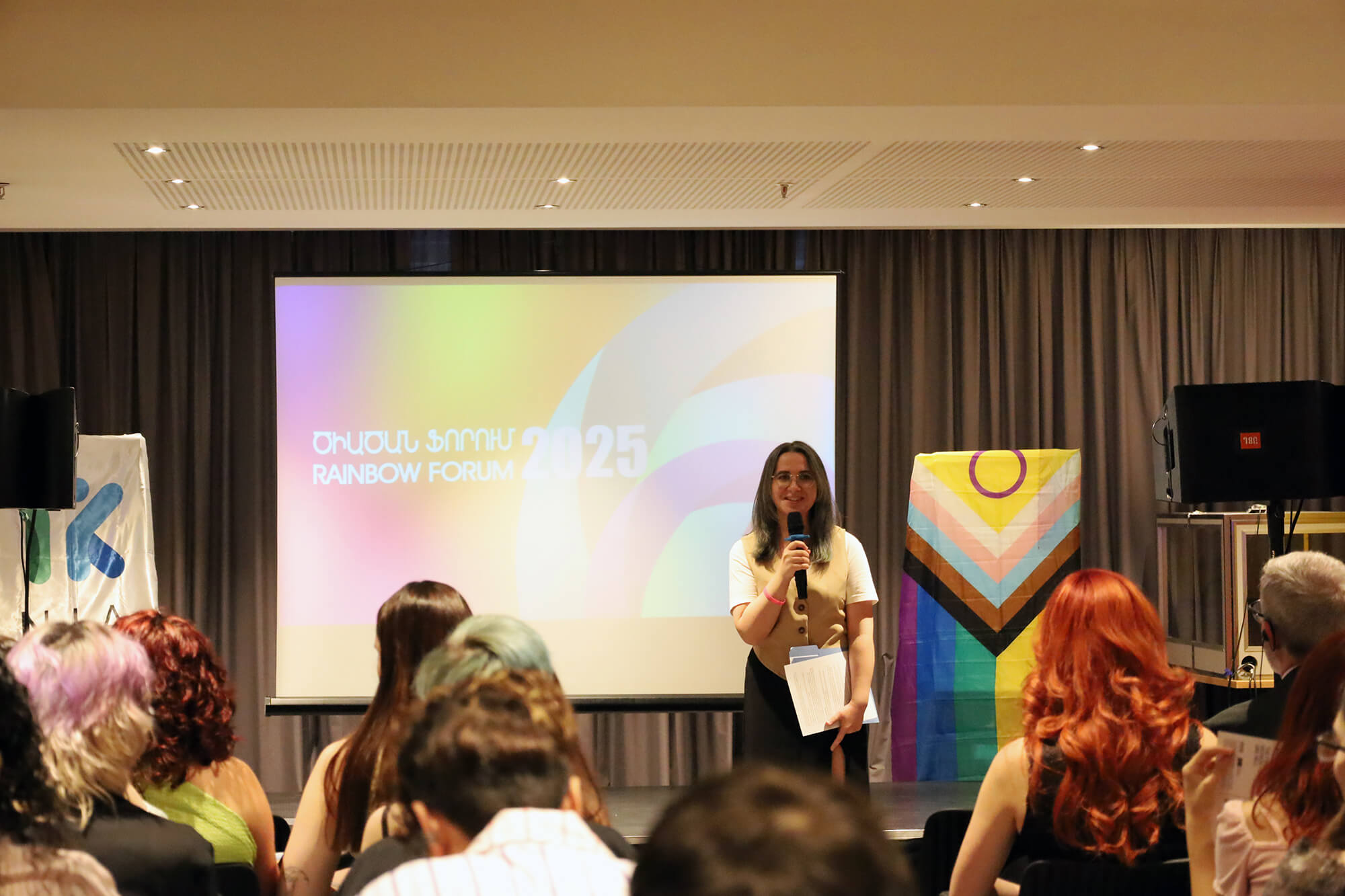The verdict of Pink against the Ministry of Culture will be ruled on March 1, 2022
In 2017, Pink human rights defender NGO petitioned the Ministry of Culture to recognize three advertisements promoting tolerance for LGBT people as social ads. The Ministry of Culture did not recognize the “Do you want everyone to be happy? Then wish us happiness”, “LGBT people are not invisible. You meet them every day”, and “Trans people are part of our society” videos and posters as social ads without submitting the rejection conclusion, to which Pink Armenia applied to the Ministry of Culture again, requesting a rejection conclusion. Finally, the Ministry of Culture referred to their reasoning that the advertisements have no social significance, and that the society is already aware of the existence of people who have “non-traditional” sexual orientation, so there is no need for this specific advertisement, and that it contained the organization’s website and a QR code which were considered as a marketing source.
Pink Armenia’s lawyer Hasmik Petrosyan had presented to the court numerous fact-based reports and research on the unfavorable situation of LGBT people in Armenia and the discrimination against them in the country to raise the matter of public importance of the issue. The fact that the Ministry of Culture did not recognize these advertisements as social ads proves that the ministry is not aware of the situation and does not realize its social importance.
The purpose of the above-mentioned advertisements was not to show the existence of homosexual people in society, but to form a tolerant attitude towards sexual minorities and to raise awareness of the social issues affecting LGBT people. Pink human rights defender NGO has repeatedly tried to draw the attention of the Ministry of Culture to the problems of LGBT people but has never received a response which proves the fact that the LGBT community is being discriminated and their issues are ignored by the ministry․
Remarkably, the tolerance towards LGBT people and the protection of their rights are not important issues that need social advertisement was the main argument of the ministry representative during the trial. According to the ministry representative, the protection of this group is considered less important than the problem of the city’s cleanliness, where its advertisement was recognized as a social ad.
To this day, the Ministry of Culture has received four requests for social advertising recognition – two have been approved and two have been rejected. The ads on domestic violence and the city’s cleanliness were approved, and Pink’s ad along with one advertising agency’s ad was rejected.
It’s important to note that the RA laws do not prohibit the inclusion of contact information for a non-profit organization in social advertising.
However, the Ministry of Culture representative baselessly rejected to recognize it as a social advertisement since Pink’s website QR code was included in it, also described it as a propagation of homosexuality unsuitable for the public, which may mislead or deceit minors.
However, all these were unsubstantiated allegations and were not supported by any factual research. As a result, the case investigation has ended. The case was appealed by Pink, resulting in a Court of Appeal ruling against the First Instance Court’s decision that the Ministry of Culture pronouncing social advertisement recognition rejection was legal.
The Court of Appeal found that the First Instance Court ruling is unsubstantiated. Now, the case is being reexamined, and the verdict will be announced on March 1st, 2022. After the unification of the ministries, the legal successor of the case is the Ministry of Education, Science, Culture, and Sports.
Depending on the verdict Pink’s subsequent actions will be determined. Evidently, several state bodies and ministries in Armenia discriminate against LGBT people, which is evident from their claims. During the trials, they have repeatedly stated that these advertisements can corrupt the society and “affect” the sexual orientation of minors.
It is conclusive that if such an attitude is expressed by the ministries and state bodies, then the state has indeed failed in its obligation to eliminate discrimination against vulnerable groups.




